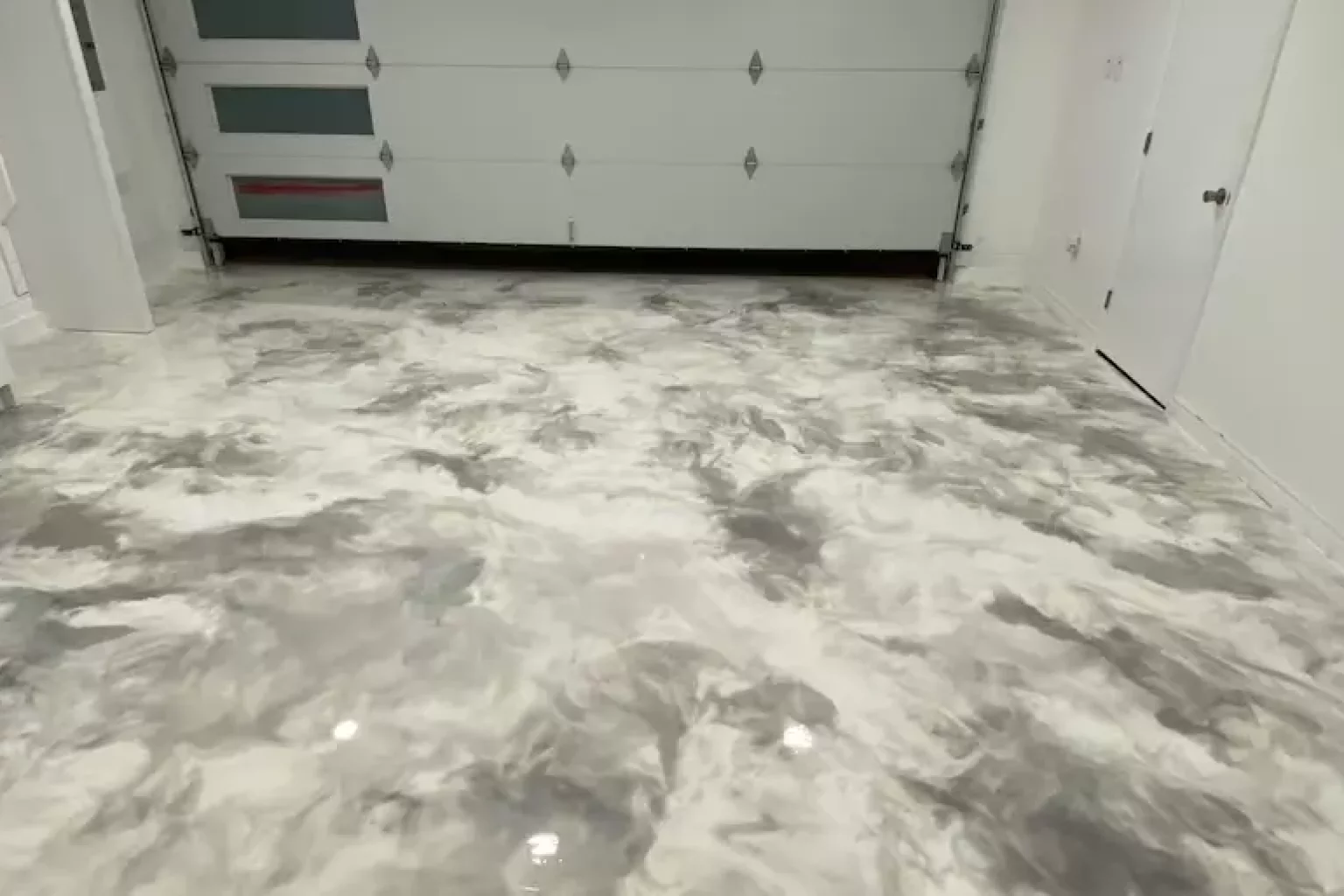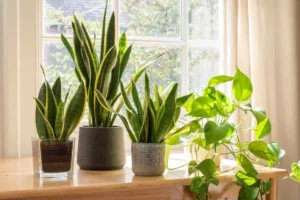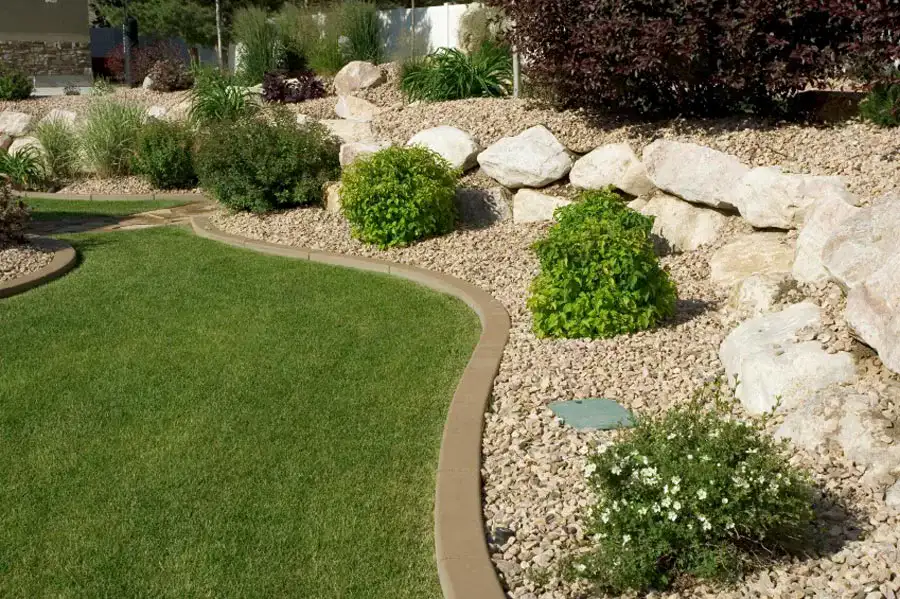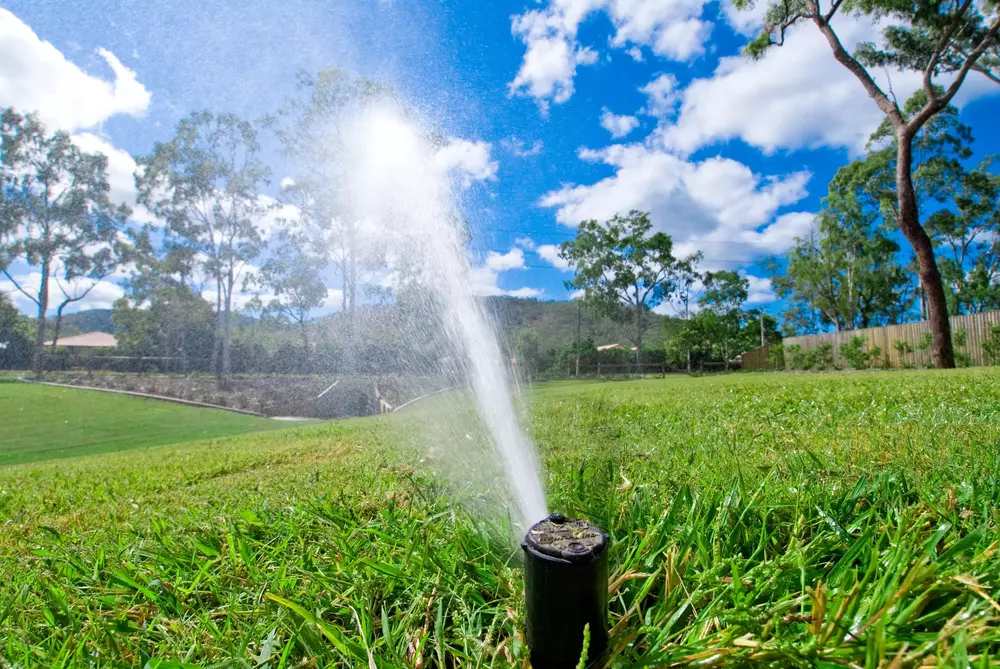Marble epoxy flooring has become a popular choice for homeowners and businesses, thanks to its stunning appearance, durability, and low maintenance requirements. In this comprehensive guide, we’ll explore everything you need to know about marble epoxy floors, including their benefits and drawbacks, installation, and maintenance.
What is a Marble Epoxy Floor?
A marble epoxy floor combines the natural beauty of marble with the strength and resilience of epoxy resin. By mixing marble chips or aggregates with epoxy resin and applying it to a prepared surface, you create a seamless, stylish, and durable floor. This type of flooring can withstand heavy foot traffic and resist stains, making it perfect for both residential and commercial settings.
Key Components of a Marble Epoxy Floor
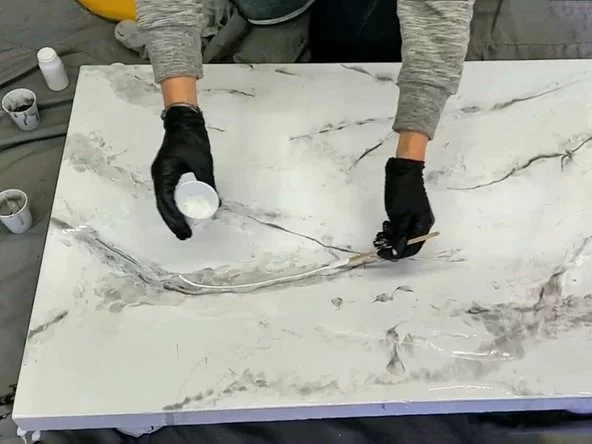
- Marble chips or aggregates: These small pieces of natural marble vary in size, shape, and color. They give marble epoxy flooring its characteristic appearance.
- Epoxy resin: A two-part compound made of a resin and a hardener, epoxy resin boasts excellent adhesive properties, durability, and resistance to chemicals and abrasion.
Why Should You Choose a Marble Epoxy Floor?
There are several reasons why marble epoxy floors might be the perfect flooring option for your home or business. Some of the most compelling reasons include:
Aesthetics
- Marble epoxy floors provide a luxurious and elegant appearance, similar to high-end natural stone flooring.
- You can choose from a wide range of colors, sizes, and patterns, allowing you to create a custom design that complements your existing décor and personal style.
Durability
- Epoxy resin is incredibly strong, so marble epoxy floors can withstand heavy foot traffic, impacts, and abrasions.
- The seamless nature of the flooring system also means no grout lines or seams where dirt and moisture can accumulate, contributing to the floor’s longevity.
Low Maintenance
- Marble epoxy floors are easy to clean, requiring only regular sweeping and occasional mopping with a mild detergent.
- Their resistance to stains, spills, and chemicals means they won’t need frequent deep cleaning or refinishing.
What are the Drawbacks of Marble Epoxy Flooring?
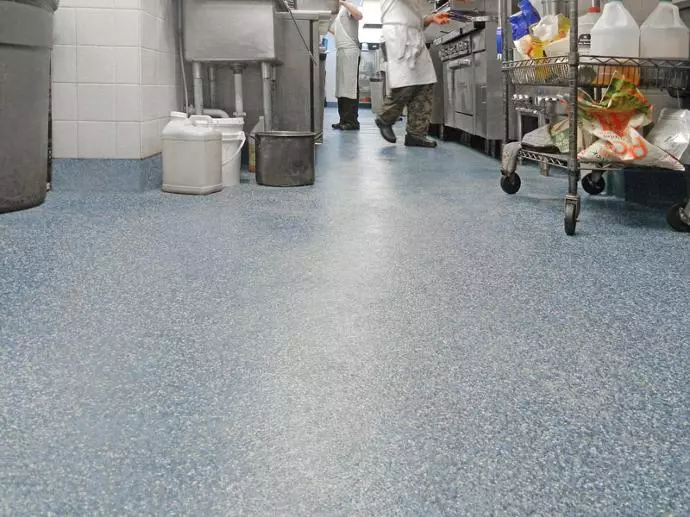
Despite its many advantages, some potential drawbacks to consider when opting for a marble epoxy floor include:
Installation Cost
- The cost of installing a marble epoxy floor can be higher than other types of flooring due to specialized materials and labor.
- However, the long-term benefits of durability and low maintenance can offset this initial expense.
Slipperiness
- Marble epoxy floors can become slippery when wet, posing a safety risk in certain environments.
- To address this issue, consider adding a slip-resistant additive to the epoxy mixture or choosing a textured finish for better traction.
How Do You Install a Marble Epoxy Floor?
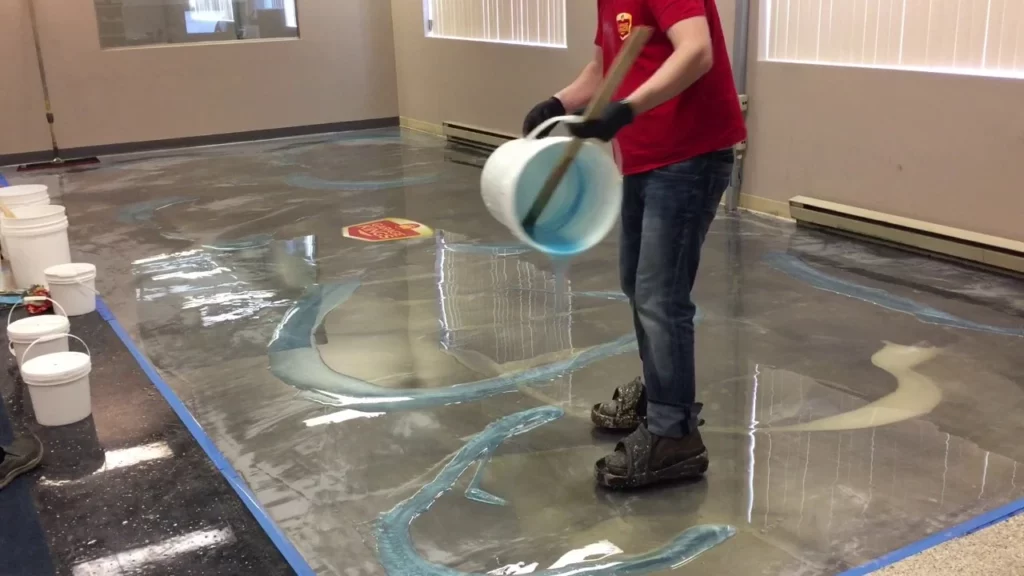
An experienced professional should handle the installation of a marble epoxy floor. The process generally involves:
- Surface preparation: Thoroughly clean the existing floor, repair it if necessary, and level it to ensure proper adhesion of the epoxy mixture.
- Primer application: Apply a primer to the prepared surface to enhance adhesion and prevent moisture penetration.
- Marble chip and epoxy mixture: Combine the marble chips with the epoxy resin, creating a thick, pliable mixture.
- Application: Apply the marble epoxy mixture to the primed surface using a trowel or screed to achieve the desired thickness and uniformity.
- Finishing: After the epoxy has partially cured, remove any excess material and grind down the surface to reveal the marble chips and create a smooth, even finish.
- Sealing: Apply a clear epoxy or polyurethane sealer to the finished floor, providing additional protection against stains, spills, and abrasions.
- Curing: Allow the floor to cure for a specified period, typically 24 to 72 hours, before walking on it or using it.
How Can You Maintain and Care for a Marble Epoxy Floor?
With proper maintenance, your marble epoxy floor can last for many years. Follow these guidelines to keep your floor looking its best:
Regular Cleaning
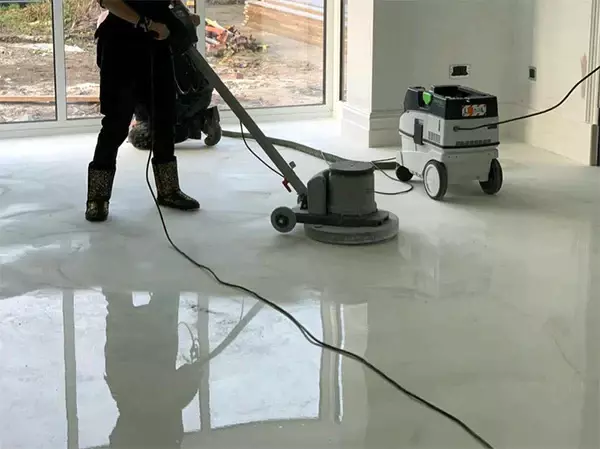
- Sweep or vacuum your marble epoxy floor regularly to remove dust, dirt, and debris.
- For a more thorough cleaning, use a damp mop with a mild detergent or a pH-neutral cleaner specifically designed for epoxy floors.
Prevent Scratches and Damage
- Place protective pads or floor mats under heavy furniture to prevent scratches or dents.
- Avoid dragging heavy objects across the floor, as this can damage the epoxy coating.
Address Spills Promptly
- Clean up spills as soon as they occur to prevent staining or damage to the floor.
- For stubborn stains, gently scrub the affected area with a soft-bristle brush and a mild cleaning solution.
What is the Cost of a Marble Epoxy Floor?
The cost of a marble epoxy flooring can vary significantly based on factors such as the size of the space, the type and quality of materials used, and the complexity of the installation process. On average, expect to pay between $10 and $20 per square foot for a professionally installed marble epoxy floor. This cost includes both materials and labor.
Although the upfront cost may be higher than other flooring options, the durability and low maintenance requirements of marble epoxy floors can make them a cost-effective choice in the long run.
Conclusion
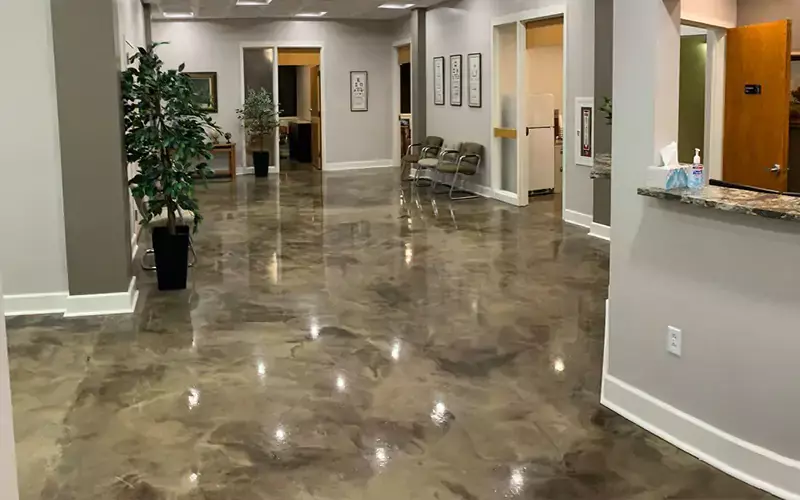
Marble epoxy floors offer an attractive, durable, and low-maintenance flooring solution for both residential and commercial settings. Their unique blend of natural beauty and unmatched performance make them an excellent choice for those seeking a high-end appearance without sacrificing practicality. By considering the benefits, drawbacks, installation process, and maintenance requirements, you can make an informed decision about whether a marble epoxy floor is the right choice for your space.


